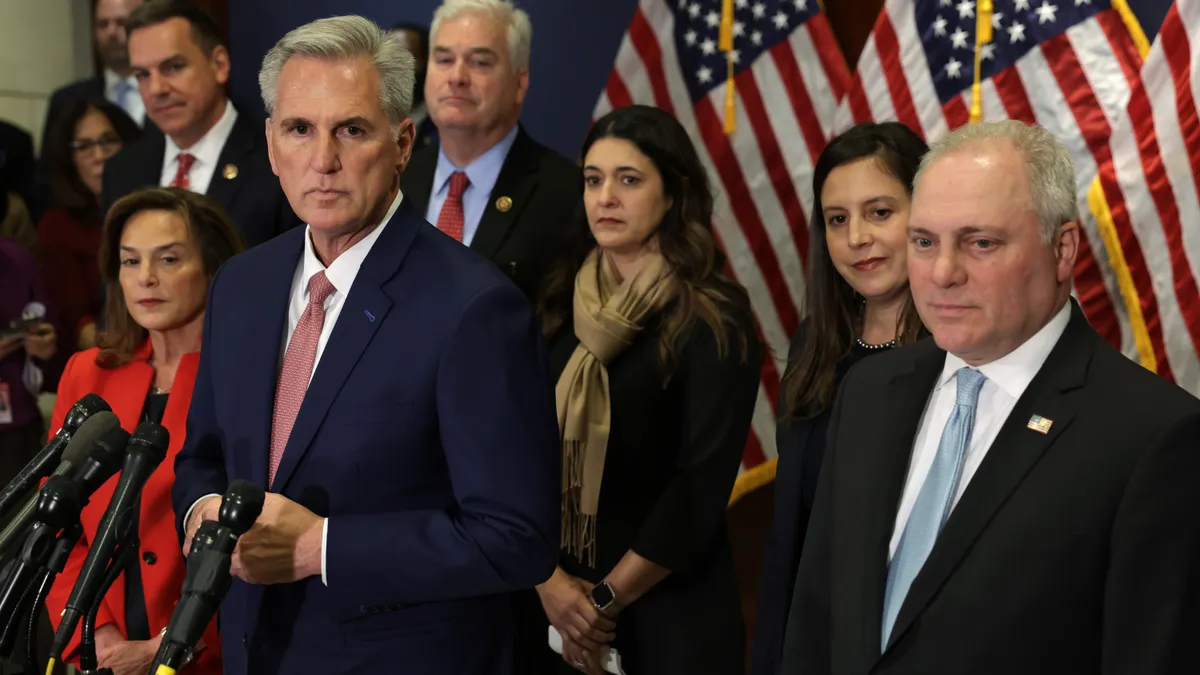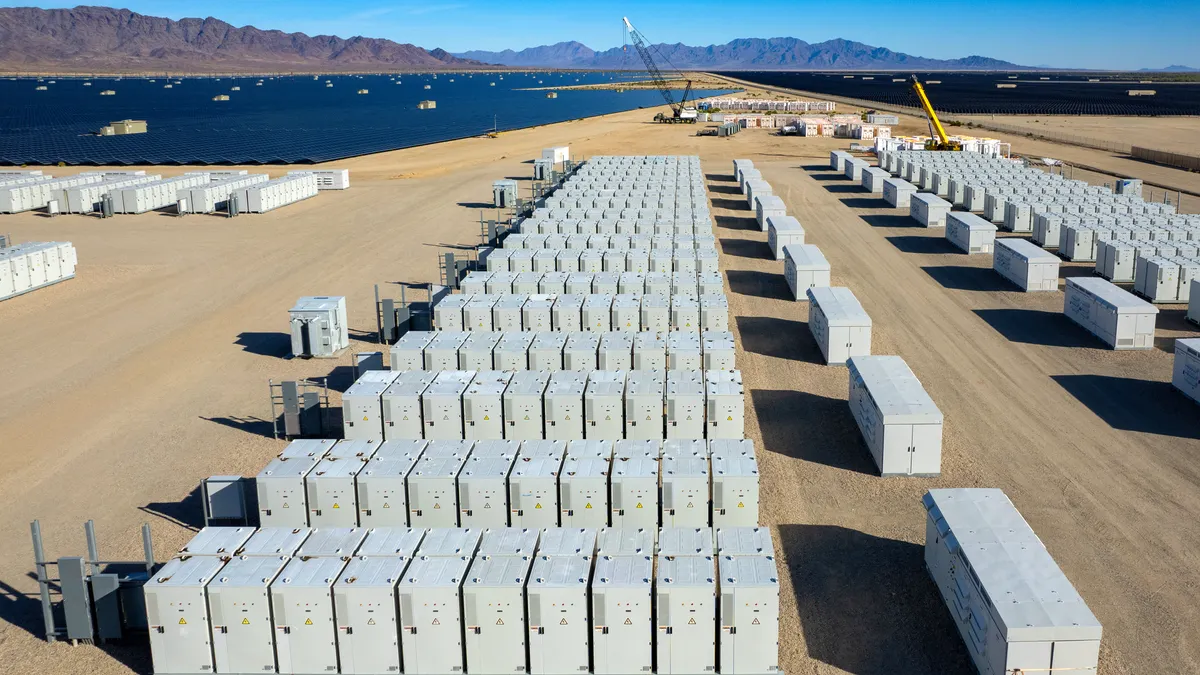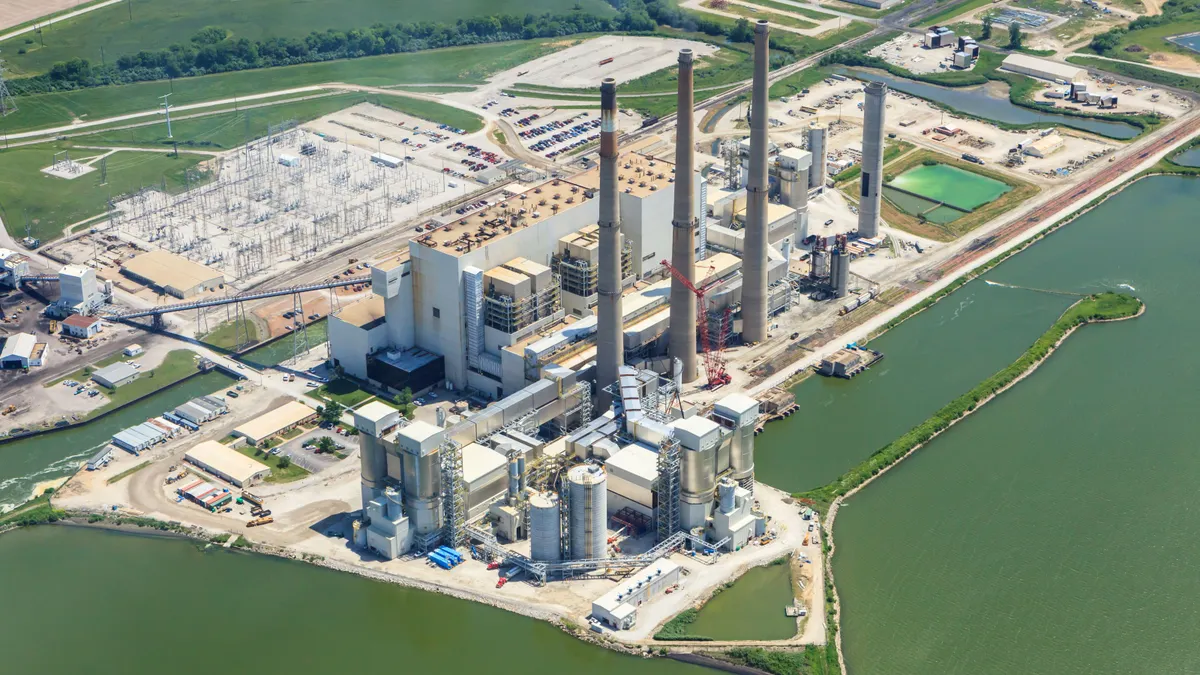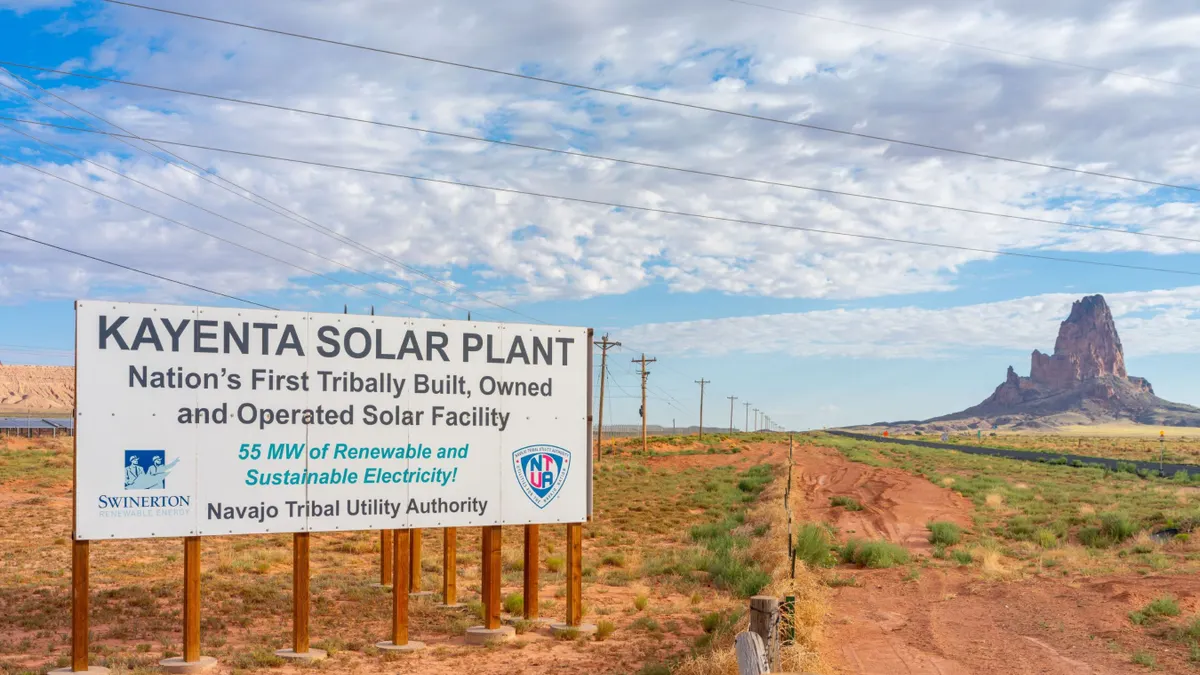Advocates of renewable energy began the 2022 election season with an unprecedented wave of optimism. The Inflation Reduction Act promised, at long last, to end the boom-and-bust cycle of fluctuating demand for renewable energy based on tax credit expiration dates and to bring long-term stability to wind and solar development.
Enter the midterms and candidate promises to repeal the Democrats' “latest price-hike bill ... on DAY ONE.” After passing without a single Republican vote, the Inflation Reduction Act has become, according to campaign rhetoric, the latest threat to the American way of life.
If it seems like we’ve seen this show before, it’s because we have. When the Affordable Care Act became law in early 2010, it, too, was quick to draw starkly partisan responses: praise from supporters who saw it ushering in a transformation of American health care and vows from detractors to bring a quick end to this latest affront to personal freedom. What followed was a years-long battle with about 8 million to 10 million Americans’ access to heath insurance hanging in the balance each election cycle.
The renewable energy industry is accustomed to this political roller coaster. For some who felt the IRA might be too good to be true, the potential for a drawn-out political battle seemed likely. Legal and political experts — including some whose experience includes the ACA itself — say a complete repeal of the IRA seems unlikely. But that won’t prevent it from remaining the subject of political rhetoric for years to come, they say, even as renewable energy advocates renew calls for policy stability.
Lessons from the past
The scale, significance and partisan nature of the Inflation Reduction Act closely mirror the Affordable Care Act, and the similarities mean that stakeholders — and politicians on Capitol Hill — can draw some lessons from the Republican Party’s unsuccessful attempt to overturn the health care reform law, according to Michael Strazzella, an attorney who has studied the Affordable Care Act case as the federal government relations practice leader at Buchanan Ingersoll & Rooney.
Strazzella believes Republicans will spend the next two years scrutinizing and attacking the IRA. However, he thinks it’s unlikely they’ll overturn the law entirely. Like the ACA, certain provisions of the IRA are popular with the Republican base, and they’re likely to become even more popular among residents of conservative communities where manufacturing expansions and job growth are set to take place. This will make eliminating the IRA politically tricky.
On top of this, the IRA could be politically useful in the short term for Republicans, Strazzella said. Republicans looking to rally votes for their next presidential nominee may not want to see such a polarizing, expensive, Democratic Party-backed law removed from action before the 2024 election.
“[The IRA] is an easy rallying cry because of the cost of it, how it was passed and who passed it,” Strazzella said. So we can expect to see more calls for oversight and perhaps even for repeal, but don’t be surprised if the outcry evaporates after 2024 with very little material action against the IRA.
“For people who wanted to take back the House, it was easy to say the IRA was too quick, it was too progressive. But to try and replace something that massive is difficult,” he said, pointing again to similarities to Republican efforts to “repeal and replace” the Affordable Care Act: “It’s one thing to propose this is how we will get people insured. It’s another to say we will take all these people off and have an alternative model.”
The political playbook
Exactly how this election-oriented and message-oriented IRA strategy unfolds will depend primarily on the balance of power in Washington, D.C., Strazzella said. With control of a single chamber, it’s much less likely that Republicans will attempt to repeal the law, according to Alex McDonough, a Pioneer Public Affairs partner who helped lobby for passage of the IRA.
Instead, said Luke Bolar, chief external affairs officer for ClearPath, a nonprofit think tank that opposed the IRA, House Republicans will likely make ample use of oversight processes to bring attention to the IRA in the run up to the 2024 election.
Bolar hasn’t heard any member of Congress say they would try to overturn the clean energy tax credits in the IRA,“but they are signaling a lot of oversight,” he said.
As the majority party in the House of Representatives, Republicans will have the authority to schedule hearings and control meeting agendas. It’s likely, Bolar said, that House Republicans will bring in the heads of federal agencies in charge of implementing the IRA to answer questions about how IRA money has been spent. This activity may not end in a vote or the creation of new laws, but it will ensure the Biden administration is held accountable, he said.
A strategy of increased oversight would fall in line with signals House Republicans have already made regarding their plans for the next two years.
Another strategy Republicans might attempt, McDonough said, is to delay the implementation of the IRA. The longer the delay, the more they can argue the law is a failure. But as was the case with the ACA, which was built on a Republican proposal for health care reform, the IRA contains many Republican provisions, such as expanded tax credits for carbon capture, nuclear and other energy-generation technologies. Republicans will be reluctant to impair the progress of programs they support, which could divide the party internally, he said.
“The ACA ... lent itself to being a little more of a discrete target,” he said. “The difference here is you have programs and incentives that are broadly appealing and are very different. You have incentives for large-scale wind and solar development; you have carbon capture and storage; you have hydrogen, which is a big priority for diverse industries; you have nuclear reactor tax credits; incentives for hydropower, and that’s just on the energy side ... and the list really just goes on. I think that will help insulate this bill from one targeted attack, because so many people are ready to defend it.”
Even if Republicans decide to adopt stalling as a tactic to stop the IRA, the options available to them are limited, McDonough added.
“I don’t think that, procedurally, they have the opportunity to delay it because, unlike most legislation ... this law doesn’t require future appropriations,” McDonough said. “The funding was done concurrently with its enactment, so everything in this bill is ready to go, subject to implementation by the administration.”
Complications in the real world
Regardless of the political threats it could face, the IRA could still face threats from the marketplace. Supply chain imbalances remain an issue in the renewable energy industry. If the number of solar and wind projects announced increases faster than the industry’s ability to build them, demand could cause a continued run-up in renewable energy prices. Or it could cause projects to be canceled outright.
“As we’ve seen in the past, there will be an attempt to take one or two examples of a failed project, or a program that didn’t perform so well, and try to project that on everything else,” McDonough said. “I think that needs to be resisted, and that’s why ... the groundwork needs to be laid to talk about the successes.”
How the IRA fares may ultimately be a question of timing. Fear of constituent outcry over the possible loss of health insurance coverage solidified the ACA’s status as unassailable U.S. law. Health exchanges were up and running in less than four years.
In contrast, building out new manufacturing capacity to support the domestic supply chains the IRA envisions could take decades.
“I think it will be different when you talk pure economics with this kind of bill,” Strazzella said. “It’s conceptual until people are actually paying less [for electricity].”
As time goes on and more jobs depend on the IRA, bipartisan support will increase, McDonough said. But in the meantime, he says, clean-energy advocates will have to work diligently to educate the public, project the law’s success and ensure that the IRA does not “suffer the death of a thousand cuts.”
“That’s why there’s such a focus on implementation right now, to get these programs, especially the new ones, to where they are able to be developed, put together and implemented — and get the funding out the door,” McDonough said.
The energy transition marches on
Industry, meanwhile, is moving forward on the assumption that the programs and incentives the IRA created will be available for at least 10 years, according to Brendan Bell, chief operating officer at Aligned Climate Capital. There’s a sense among renewable energy companies, Bell said, that a Republican attack on the IRA’s clean energy provisions is unlikely — and that even if it comes, it will be very difficult to overturn the IRA’s clean energy tax credits.
“To block people from taking the tax credit, they have to stop people from filing their taxes,” Bell said. “There’s a certain reality that these are real projects and that this program has existed for years ... Investors and businesses understand these programs really well because these are the same underlying programs that have driven the clean energy transition for the last 10 years. So investors and businesses feel very comfortable. The projects are proceeding.”
Even if the IRA comes under political fire, Bell said, the industry is now mature enough that a loss, delay or reduction of tax credits seems unlikely to bring renewable energy development to a complete halt. Tax credits simply aren’t the driving force behind new solar and wind projects anymore. “Coal plants are being shut down by utilities and replaced with wind and solar because it’s cheaper,” Bell said.
That said, renewable energy companies have shown an interest in getting new projects online as quickly as possible, Bell said. As with previous tax credits, the the IRA’s tax credits have created a sense of urgency to take advantage of them and ramp up production quickly to build a case against attacks on the law.
“I think that even if those attacks and efforts to repeal it come, the support will be well prepared,” McDonough said. “I think there will be so many examples and opportunities for people who are working on these projects to make it known that clean energy investments are here ... and that they need to be continued.”
It’s also possible, said ClearPath’s Bolar, that political angst over the IRA could have positive effects on the renewable energy industry. For all the tax credits and incentives in the law, he said, the IRA did little to address permitting and interconnection backlogs that in recent years have held back renewable energy deployment.
If administrative delays end up presenting a threat that Republicans could use to argue the IRA is ineffective, Bolar said, it might motivate Democrats to change their tune on a subject they’ve been historically reluctant to discuss.






















